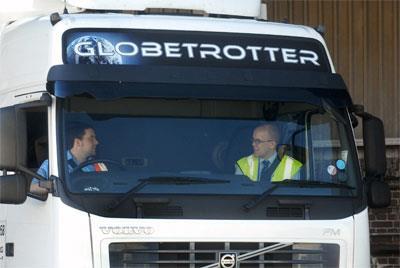
Lack of harmonisation of standards for Driver CPC training across the 27 European Union member states is in danger of wrecking one of the original goals of the directive introducing the compulsory training of drivers – mutual recognition of the qualification by every member state.
Distrust of standards of instructors and training in other states means four members states- Denmark, Hungary, Lithuania and Sweden - do not recognise the Initial Driver CPC done in other EU countries and eight states – including the Czech Republic, Hungary, France and Sweden - do not accept partial periodic training carried out in other EU countries. The second in a series of four seminars being held by European transport operators’ association the International Road Transport Union (IRU) was told by IRU head of EU road safety Damian Viccars that the Driver CPC directive 2003/59 had given member states a range of options for transposing it into national law.
This has resulted in wide variations in the qualifications required for instructors to carry out Driver CPC training, different approaches to approving training centres, and the requirement for drivers to be tested as well as trained in some states but not in others.
“One of the goals of Directive 2003/59 was to align training requirements to balance competition and allow mobility so drivers can work across the EU,” Viccars told the seminar in Paris. “Diversity in implementation is part of the reason for lack of faith in each other’s systems.”
Viccars added that slow take up of Driver CPC could cause problems with training capacity in some states as the deadline approached, and that wide variances in the quality of training in different member states was also an issue.
“Training must be delivered by an approved centre in every state, but how good are these approval systems?” he asked. “Some countries require instructors to have formal qualifications but others just look for experience. Too many drivers are focused on acquiring the paperwork at lowest cost and this spoils the market for those who want to deliver quality training. If enforcement is too lax it will undermine the goals of the directive.”
The differences in quality of training are graphically reflected in typical costs, with the Initial Driver CPC costing under €300 in Romania but €5,000 in Finland and the Periodic Driver CPC setting drivers back under €100 in Romania but up to €1,000 in Luxemburg and the Netherlands. Different states have also introduced different deadlines for implementation of the Driver CPC.
While most including the UK went for September 2014, some including Spain, Belgium and the Netherlands have given drivers until 2016 to complete the required 35 hours periodic training. This gives enforcement authorities a headache, as foreign drivers from states with a 2016 deadline driving in EU states with an earlier deadline will be exempt until 2016.
The authorities have another problem when carrying out roadside checks – some states including the UK require drivers to carry a DQC as evidence of completing the Driver CPC, but nine including the Netherlands and Germany will add a special code the driving licence to indicate the driver is qualified.













